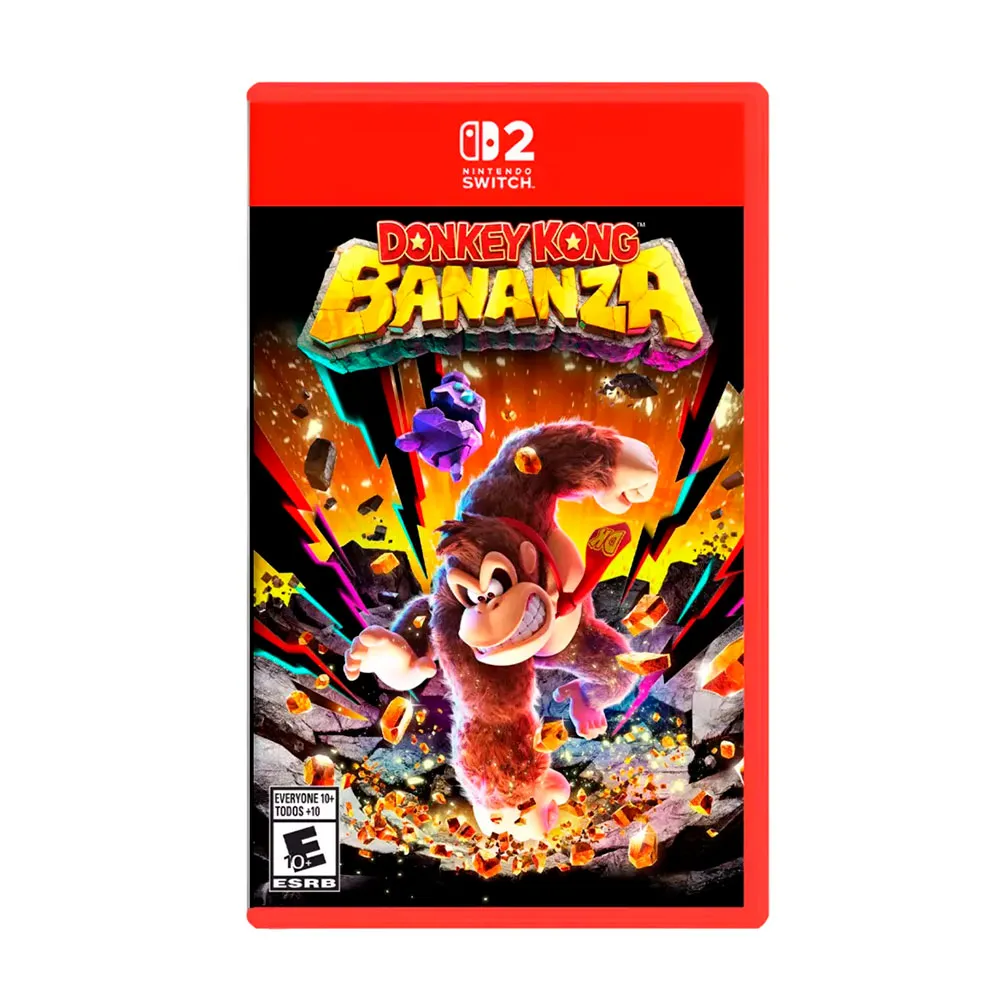Many players who completed Donkey Kong Bananza likely found themselves breezing through it with minimal frustration or excessive effort. It`s a common observation that bosses are defeated quickly, in-game gold seems limitless, and the overall experience is simply `too easy.` However, such a simplistic characterization often oversimplifies the nuances of game difficulty, not just for Bananza, but for video games in general.
The label `too easy` frequently carries negative connotations, suggesting a game might be overly simplistic, lacking in depth, or guilty of excessive hand-holding, thereby failing to provide genuine satisfaction from overcoming challenges.
Yet, framing Donkey Kong Bananza in this manner overlooks what makes the game genuinely enjoyable. Bananza feels effortless not because of a lack of design, but because its rich and complex underlying framework is presented in an incredibly accessible and intuitive way. By equipping players with all the necessary tools to thrive in its expansive sandbox, Nintendo successfully created a game that feels seamless to navigate. If you perceive the game as easy, it’s a testament to its successful design – Nintendo deliberately aimed for that feeling of fluid accomplishment.
Assuming Donkey Kong Bananza isn`t your very first video game, you likely possess a degree of gaming literacy. Nintendo capitalizes on this by introducing a unique `gameplay language` that players can quickly pick up. As you progress, you learn to combine basic control functions to execute dynamic and creative movements. This isn`t unlike how Mario utilizes Cappy for platforming in Super Mario Odyssey, though DK`s array of abilities might be even more extensive.

Donkey Kong Bananza is a game that encourages creative problem-solving, and it skillfully trains players in its `gameplay language` to ensure these solutions come naturally. Often, the answer to a challenge is presented directly to the player, but the game refrains from explicitly giving it away (aside from specific `Fractones` shaped like arrows that guide you during key story moments). Instead, players must draw upon their accumulated experience from past challenges and their versatile use of the game`s mechanics to devise innovative solutions.
My experience with Bananza frequently brought to mind The Legend of Zelda: Breath of the Wild (and its sequel), where problems often have multiple, sometimes unforeseen, solutions. Your internalized knowledge of the game`s physics and how different elements interact becomes crucial, and both Bananza and Breath of the Wild empower you to experiment and solve puzzles on your own terms. The `challenge rooms` in Bananza, much like Zelda’s shrines, serve as excellent tests of your mastery over the game’s systems and your ability to apply them creatively in various scenarios.
Both the open-world Zelda titles and Bananza offer such a wealth of abilities and moves that finding your own path to a solution can feel almost like `cheating.` Consider those moments in Bananza where you might have bypassed an intended platforming section by gliding with an ostrich, or discovered a `shortcut` to a Banandium Gem.
This doesn`t signify a flaw; rather, it`s a testament to your ingenuity as a player. Given the rigorous testing any video game undergoes, Nintendo was undoubtedly aware of these possibilities. Bananza is meticulously designed to make these clever solutions feel entirely like your original idea.

Having said all this, arguing against the simplistic label of `too easy` isn`t to absolve Donkey Kong Bananza of any flaws or to shield it from legitimate criticism. The boss fights, for instance, are largely unmemorable encounters that negatively impact the game`s pacing, and the excessive abundance of gold effectively undermines the in-game economy. Such imbalances in Bananza certainly warrant discussion. However, condemning the game as `too easy` often diverts attention from the profound sense of triumph and empowerment that players should genuinely feel.
It might seem unconventional to compare Donkey Kong Bananza to games like Dark Souls or Elden Ring, titles widely recognized for their formidable difficulty. Yet, both Nintendo and From Software share a fundamental goal with their respective creations: to make the player feel powerful.
Hidetaka Miyazaki, creator of Demon`s Souls, revealed in 2009 that making the game `difficult` was never the developers` primary objective. Instead, From Software aimed for players to experience an `intense sense of accomplishment through forming strategies, overcoming obstacles, and discovering new things.` While their methodologies diverge dramatically—Souls games are famously unforgiving—what they share in common is providing players with the tools to achieve that profound sense of accomplishment.

While a game like Dark Souls is undeniably less approachable and more complex than Donkey Kong Bananza, both are ultimately designed to be completed. Video games should evoke feelings of success, power, and intelligence, and Nintendo’s design for Bananza masterfully achieves just that.
Furthermore, consistent with most modern Nintendo platformers, players seeking a higher level of challenge in Bananza can explore its extensive post-game content. If you venture into the Bananza Rehearsal levels, be prepared for infuriating difficulty. Should the base game have felt devoid of tension for you, these levels will undoubtedly provide it—and the satisfaction, or at least immense relief, upon conquering them is truly rewarding.
We`ll likely never abandon the simplistic vocabulary of `easy` and `hard` when describing games; these terms are, quite frankly, too easy to use in discussions. Nevertheless, given the significant empowerment these games offer players, we should strive for a more critical and nuanced discussion about what truly makes a game feel easy or hard, rather than dismissing an entire experience with a single adjective.
I understand why some players might label Donkey Kong Bananza as `too easy.` However, beyond acknowledging the developers` skill in crafting an approachable experience, we should also recognize and celebrate our own growing proficiency as video game players.

